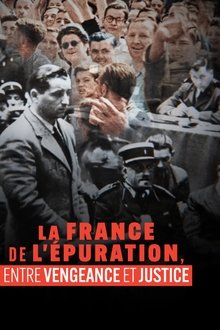We've all heard of the atomic bomb, but in the late 1950s, an idea was conceived of a bomb which would maximize damage to people, but minimize damage to buildings and vital infrastructure: perfect for an occupying army. This is the story of a man and his bomb: a melding of world events and scientific discovery inspire the neutron bomb, one of the most hated nuclear weapons ever invented.
Related Movies
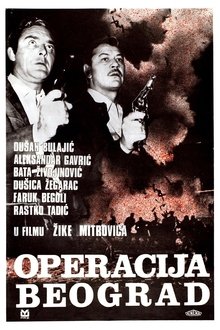
Operation Belgrade (1968)
In Autumn of 1943 American plane carrying Soviet colonel is shot down near Nazi-occupied Belgrade. Germans capture the colonel and begin interrogations, because he knows everything about forecoming Allied summit in Tehran. Group of Yugoslav Partizans is sent to Belgrade in order to rescue the colonel before he starts talking.

After the War, You Have to Tell Everyone About the Dutch Gay Resistance Fighters (1991)
Many members of the Dutch Underground were gay and lesbian. This film pays homage to them and recounts their story.

Battle of Okinawa in Color (2017)
By mid-1945, Hitler is dead and the war has ended in Europe. Halfway around the world, however, the fighting is still going strong on a small island in the Pacific. Okinawa was the site of the last battle of the last great war of the 20th century, with a casualty rate in the tens of thousands. Through it all, military cameramen risked their lives to film the conflict, from brutal land combat to fierce kamikaze attacks at sea. See the footage they captured and experience this intense battle the way the soldiers saw it -- in color.

June 1940, the Great Chaos (2010)
From May 10, 1940, France is living one of the worst tragedies of it history. In a few weeks, the country folds, and then collapsed in facing the attack of the Nazi Germany. On June 1940, each day is a tragedy. For the first time, thanks to historic revelations, and to numerous never seen before images and documents and reenacted situations of the time, this film recounts the incredible stories of those men and women trapped in the torment of this great chaos.

What If They Bomb Here Tonight (2025)
A Lebanese couple spends a sleepless night, fearing an Israeli airstrike could shatter their glass walls. With children nearby, they face the impossible choice to stay or flee their life.

The Painted Bird (2019)
After losing his parents, a young Jewish boy wanders Eastern Europe, seeking refuge during World War II.

A Bloody Tale (1969)
Memory of the victims of the Kragujevac massacre is described through the events that are related to a group of boys, shoe shiners. At that time, thousands of workers refused to work for the invaders, and the whole city was exposed to harsh repression and persecution of innocent citizens and the abolition of the regular rations of food.

Big and Small (1956)
Under a police pursuit, Pavle tries to transfer a group of illegals on a free liberated territory. Pavle hopes to find a hideaway at an old friend Stevan, but these expectations fail. However, help unexpectedly comes from Stevan's little son Aca.
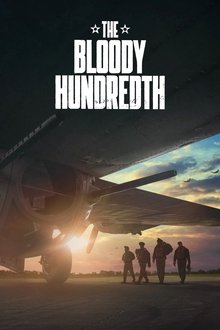
The Bloody Hundredth (2024)
Meet the real-life airmen who inspired Masters of the Air as they share the harrowing and transformative events of the 100th Bomb Group.
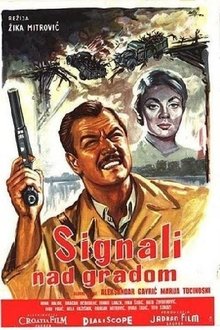
Signal Over the City (1960)
The movie is based on true events that occured in Croatian city of Karlovac in 1941. In order to save the imprisoned high ranking member of the resistance movement, the group of Partizans are conducting daring raid in the very center of the enemy stronghold.
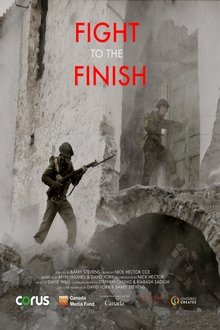
Fight to the Finish (2020)
Marking the 75th Anniversary of the end of WWII, the documentary features the first-hand accounts of the Canadians who fought in the worst war in human history. Raw and personal experiences of the terror, pride, horror, excitement, friendship and loss – told through the eyes of the people who fought it.

The Mies van der Rohes – A Female Family Saga (2023)
An epic family saga told by the women around the famous architect Ludwig Mies van der Rohe.
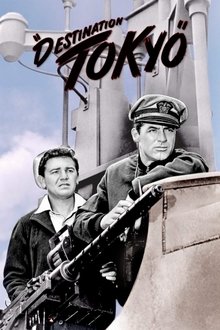
Destination Tokyo (1943)
During World War II, Captain Cassidy and his crew of submariners are ordered into Tokyo Bay on a secret mission. They are to gather information in advance of the planned bombing of Tokyo. Along the way, the crew learn about each other as they face the enemy and some of them lose their lives.

The Rape of Europa (2007)
World War II was not just the most destructive conflict in humanity, it was also the greatest theft in history: lives, families, communities, property, culture and heritage were all stolen. The story of Nazi Germany's plundering of Europe's great works of art during World War II and Allied efforts to minimize the damage.
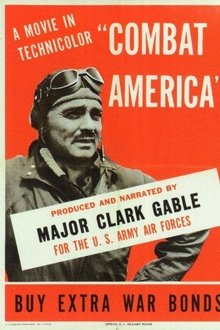
Combat America (1943)
Produced in 1943 under the guidance of Army Air Force Lieutenant Clark Gable, this film follows a single 8th Air Force B-17 crew from training through a series of missions over Europe.
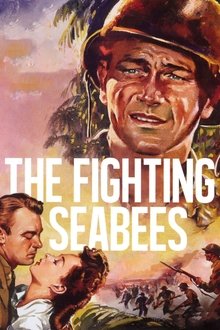
The Fighting Seabees (1944)
Construction workers in World War II in the Pacific are needed to build military sites, but the work is dangerous and they doubt the ability of the Navy to protect them. After a series of attacks by the Japanese, something new is tried, Construction Battalions (CBs=Seabees). The new CBs have to both build and be ready to fight.

The Crying Fields (2019)
A deep dive into the history of the Canadian Government and the Department of National Defence leasing First Nations reserves as practice bombing ranges during World War I and World War II. This documentary follows the Enoch Cree Nation's process of developing it's land claim against the Canadian Government following the discovery of active landmines in the heart of the nation's cultural lands and golf course in 2014, almost 70 years later.


